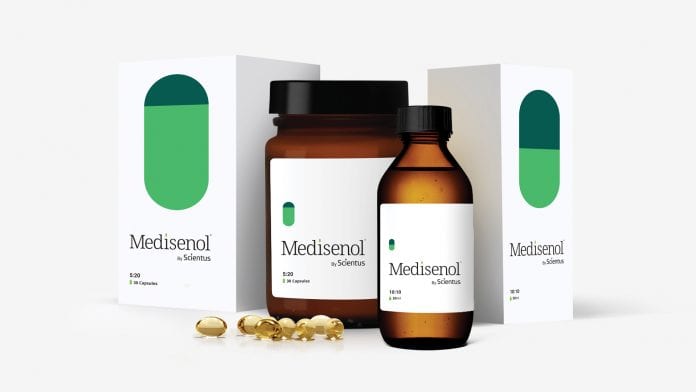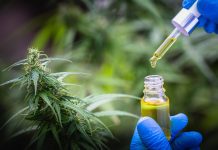
Scientus Pharma have already uncovered areas of remarkable potential with a focus on practical applications, could drug development challenges be solved?
Here, we learn how they are leveraging state of the art research to lay the groundwork for a pipeline of cannabis-based products and therapies for market. Health Europa sat down with Har Grover, co-founder, Chairman and CEO of Scientus Pharma. Here, we covered several topics involving drug development challenges, but most intriguing was Scientus Pharma’s approach to drug development and commercialisation in the cannabis sector.
Tell me about Scientus Pharma’s origin story
We set on our journey six years ago, to develop novel, cannabinoid-based pharmaceutical therapies for the treatment of several diseases with a preponderance of anecdotal evidence that cannabis could play a beneficial role.
Deeply rooted in the life sciences, we had a long term view that we could isolate individual cannabinoids, figure out how to synthesise them effectively, conduct testing against disease targets, and work through the clinical trials to get the drugs approved for treatment and on to the market to help patients.
While the road I describe is a long one, we discovered early on that there were other properties of cannabis that could be exploited more readily and would allow us to bring effective therapies to market sooner.
So, what is your view of drug development?
In our early reviews of the literature, we were intrigued by what was being termed ‘the entourage effect,’ referring to the synergistic interaction between the different cannabinoids. It suggests that there are benefits of using a full spectrum natural extract over isolated cannabinoids, and further, that there is value to focusing on natural forms rather synthetic.
While we still have our long-term view on traditional synthetic approaches to drug development, we believe that the next 5-10 years should focus on more accessible therapeutics based on the natural extract. There are a number of building blocks that have to be established before drug development work can be fully realised:
- We need to have a standardised Active Pharmaceutical Ingredient (API);
- We need cost effective and scalable methods to manufacture commercial level pharmaceutic products;
- We need deeper understanding of the mechanism of action of individual cannabinoids and we need more data on the endocannabinoid system; and
- We need a clearer, internationally consistent regulatory framework.
That sounds interesting, can you address the four requirements and how Scientus has approached them?
We focused on the first requirement initially – developing a standardised API. Not only was this a fundamental building block to the other requirements, but we were also able to protect our intellectual property through patents and trade secrets. First mover advantage only matters if you can protect it.
Everyone knows there is a huge amount of variability in the processing of cannabis – because it is an agricultural product with harvest and batch variability, and also because all of the individual cannabinoids behave in different ways.
One of the things that is fixable, but the industry has not really addressed effectively, is the activation of the cannabinoids. In their natural form (THCA, CBDA, CBGA, etc.), the cannabinoids are inactive. There is some evidence that the acid form of the cannabinoids may be useful in some therapies, but this research is very early stage. For the most part, the acid form has no activity or affinity with the main cannabinoid receptors – CB1 and CB2.
In the manufacturing process you need to activate the cannabinoids through a chemical reaction that converts the acid form into a decarboxylated form (THC, CBD, CDG, etc.). We found the existing methods used to create this chemical reaction did not meet our criteria for effective global scale, pharma grade manufacturing.
As a result, our scientists developed a method that performs both the extraction and decarboxylation in a single step. Consequently, we are able to efficiently produce a full spectrum extract that is consistently 99.5% activated, repeatable every time.
What about the second requirement, global scale?
It turns out that the important first step also enabled the second requirement – our extraction and manufacturing process is a repeatable, consistent process that results in lower costs and a higher quality product that is the norm in global scale companies.
And, the work on individual cannabinoids?
As to the last two requirements, we are several years away from having the data to make good bets on isolated cannabinoids, and we are very interested in partnering with other companies that have advanced the science and understanding of the mechanisms of action of the individual cannabinoids.
We are also maintaining a watchful eye on new trends such as biosynthesis that will play a key role in the manufacturing of isolated cannabinoids in the future.
How does the regulatory environment impact you?
We can’t control what regulators do. So, we watch internationally to see which jurisdictions are developing to support our business model. We are particularly interested in European markets. For example, German regulations are evolving in a way that incorporates reimbursement and the pharmacy distribution channel. Those are areas where Canada is yet to address.
We are also interested in developments in Asia, but these are still early. And of course, we pay close attention to low cost production jurisdictions such as South America and Africa.
Once you have developed the drug formulations, what makes cannabinoids unique from a commercialisation point of view?
It is certainly challenging to commercialise pharma-grade products in this sector. In the jurisdictions in which we are currently operating, cannabinoid products are sold under regulations specific to cannabis. We forego opportunities to therapeutic claim for a specific disease, as one would do for a prescription drug. But at the other end of the spectrum, we also cannot sell the product as one would do for an over the counter or consumer product, because cannabinoid products are highly regulated as a controlled substance, which includes tight restrictions on advertising and promotion.
In addition to these challenges, cannabinoid products are available through multiple distribution channels associated with medical and recreational markets and have confusing product brand names and information that do not make sense to patients with real medical needs.
These ‘uncharted territory’ attributes make it very difficult to communicate marketing messages to physicians and patients. Our market research showed those groups are overwhelmed with the choices they are confronted with in readily accessible consumer markets, and they are frustrated with the lack of scientific data and consistency of the products available.
In response to these challenges, we developed the Medisenol product brand family that is described in this article later on.
Our strength is our deep roots in the life sciences. One of our core principles is to try to create the right dialogue between physicians and patients. That approach will transcend borders. Healthcare markets worldwide require an effective dialogue between health care practitioners and patients in order to get an effective launch of cannabinoid-based therapies.
Tell me about your international plans
Canada has been at the forefront of regulatory changes in our sector. The clarity of our federal framework has permitted Canadian companies to get started on things early and establish leadership positions. However, the market on whole is still very nascent. We are observing groups in Europe and other jurisdictions make substantial gains lately. We are particularly interested in Europe as a top priority for our expansion, and even more narrowly, our perception is that Germany, UK, Israel, Portugal and a few other countries have some very attractive attributes.
Are you seeking partnerships related to international expansion?
Partnering is certainly part of our growth strategy. In fact, we currently have a strategic manufacturing partnership with a UK based company, C-Tech Innovation, a world-leading manufacturer of continuous flow heating technologies for both chemical and pharmaceutical manufacturing sectors. Our proprietary extraction and decarboxylation system (patented) was manufactured by them on an exclusive basis.
Strategic partnering is important to us not only in manufacturing and gaining access to international markets, but also from the scientific perspective. We see many groups outside Canada making substantial advances in developing technologies and formulations that are needed for pharmaceutical approaches to this sector. That also includes some smart approaches to clinical development. Those are the groups with whom we are interested in partnering.
Over the last six years, we have built the infrastructure to serve as a receptor for those groups that are at an early stage and are looking for the horsepower to get their innovations to the next stage. Given the overlap between pharmaceutical and recreational products in this sector, it is important for us to identify those potential partners that have a very disciplined scientific approach.
Chemical components and extraction technologies
We were able to chat with Dr Peter Sampson, Scientus’s Director of Research and Clinical Development. He gave us his insights into the science of decarboxylation.
Cannabis use for therapeutic purposes dates back centuries.1 Recently, cannabis for medical purposes has been gaining acceptance in the medical community. Limited clinical evidence for non-smokable forms, unreliable products and delivery methods and unstandardised dosing options have left doctors wondering how best to prescribe cannabis. How can they be assured that the patient will receive the desired therapeutic dose each and every time?
Smoking or vaping is the most common form of medical cannabis administration, but it is also the most inconsistent. Oral formulations, such as oils, capsules, tablets or sprays are better options for delivering a standardised dose of drug.
Oral forms of cannabis medication are derived by removing the medicinal components from the cannabis plant through an extraction process. There are three main extraction technologies that are currently used in the medicinal cannabis industry:
- Supercritical Fluid Extraction (SFE);
- Butane Hash Oil (BHO); and
- Solvent-based extraction (typical solvents include Ethanol, Isopropanol and Hexane).
Supercritical Fluid Extraction dominates the market due to its production of a ‘residue-free’ extract. Butane Hash Oil is used in the black market and not currently legal in Canada. Solvent based extractions are used to obtain a full spectrum extract that has a close profile to the main components of botanical cannabis.
The main drawback of each of these techniques is the lack of consistency of the extracts, particularly with respect to the medicinal ingredients present in the extract. In order for cannabis to be effective as a therapeutic, the medicinal ingredients, called cannabinoids, need to be unlocked or ‘activated.’ This activation is called Decarboxylation. When cannabis is smoked or vapourised, decarboxylation occurs almost instantaneously due to the extremely high temperatures. The decarboxylated, and now active, cannabinoids can be inhaled and readily absorbed through the lungs. In order for an oral cannabis medication to be effective however, the cannabinoids need to be decarboxylated prior to ingestion. This requires that either the plant or plant extract be heated at high temperature for an extended period of time.
The two main medicinal components of cannabis that are the focus of many patients are ∆9-tetrahydrocannabinol (THC) and cannabidiol (CBD). THC and CBD are created by decarboxylation of ∆9-tetrahydrocannabinolic acid (THCA) and cannabidiolic acid (CBDA).
For the extract market, a decarboxylation step is required as part of the process. With Supercritical Fluid Extraction, the decarboxylation step is performed by heating the dried cannabis before extraction or heating the product extract in an oven. Oven heating is an inefficient and unreliable means of activating cannabis. On production scale, heating times are typically greater than 24 h and activation of the cannabinoids ranging 60-100%. Solvent based extractions have similar processing times and decarboxylation efficiency.
Two studies published in the Journal of the American Medical Association (JAMA) highlight the unreliability of the extract market.2,3 Of 84 commercially available cannabidiol extract products evaluated, 23% contained less CBD than claimed on the label and 43% had levels of CBD higher than what was reported on the label. Similar discrepancies were found with THC products. Over 80% THC extracts tested contained lower or higher levels of THC than was reported on the label. Products with such inconsistencies in cannabinoid content may not provide the desired therapeutic benefit.
From a pharmaceutical perspective, the extract needs to be fully activated in order to bring the product in line with acceptable tolerance limits. A consistent resin extract is crucial for formulating a reliable and effective dose of medication.
The Scientus Pharma solution
Researchers at Scientus Pharma developed a propriety cannabis production process that provides an extract that is fully activated (completely Decarboxylated) each and every time. This level of consistency is currently unparalleled in the industry. Heating the extract for a short period of time as part of a highly controlled process is the key to efficiently creating a consistent, fully decarboxylated extract.
What do you know about microwave chemistry?
Microwave chemistry is a technique that has been used extensively in the pharmaceutical industry to increase the speed and efficiency of a chemical reaction. The advantage of microwave technology is the ability to rapidly heat a solvent under pressure to temperatures beyond the typical boiling point of the solvent. In addition, microwave chemistry can offer up to 90% saving in energy consumption compared to conventional heating.
Scientus Pharma has advanced a proprietary microwave-assisted decarboxylation process from milligram scale to production scale at the kilogram level. The application of microwave technology enables complete cannabinoid decarboxylation in under 45 min compared to >24 h by conventional heating methods. The extract is currently being formulated into medicinal products such as oils, softgel capsules and tablets.
Conclusions
As the medical cannabis industry evolves towards a pharmaceutical model, it is critical that the quality and effectiveness of the drug is consistent batch to batch. The cannabinoid extraction process developed by Scientus Pharma consistently provides a fully decarboxylated extract faster and more reliably compared to other extraction techniques.
Doctors need to be confident that the drug they are prescribing is the drug described on the label. Patients need confidence that the drug they are taking will provide the desired medical benefit every time. Scientus Pharma is at the forefront of producing cannabis-based drug products that meet this level of consistency.
Medical cannabis that’s researched and designed with your pain in mind
We were able to sit down with Victoria Vertesi, Senior Vice President Commercialisation of Scientus. She spoke about the challenges of marketing a hybrid pharmaceutic product
Committed to helping you find pain relief
We’ve spent time with people in pain. We learned that there’s an incredible interest in the medicinal potential of cannabis for relief, but there were concerns about consistency, complexity, and inaccessibility. Medisenol was born from the needs of chronic pain sufferers in search of not just relief, but also clarity, simplicity, transparency, and commitment to helping them feel better.
What makes us different
You expect medication to work the same way every time, whether it’s an over the counter medication or cannabis-based medicine.
Product consistency
Using a proprietary patented process known as continuous-flow extraction, the makers of Medisenol are able to produce fully active medical cannabis oils and softgel capsules. You can expect the same level of active ingredients from bottle-to-bottle and capsule to capsule.
Uncomplicated products
We’ve created a simple product line up that takes the complexity out of decision making. No need to navigate confusing product names – we offer 3 types of products, and they’re each available in oils and softgel capsules. It doesn’t get easier than this.
Made as medicine
Medisenol is focused entirely on medical cannabis products – based on research with real pain sufferers and Health Care Providers. Our focus is on well-researched products that provide you with accurate, consistent dosing for treatment.
Clinically researched
As a Licensed Producer under The Cannabis Act, we are leading the charge with research and clinical trials so that you have the most up to date information and get the right treatment for your condition.
Pharma-grade manufacturing
Every aspect of our product development and manufacturing process is designed to produce a safe, reliable, and consistent product. We operate an analytical testing laboratory and a GMP focused production environment.
Patented cannabis extraction methods help create quality medical cannabis products
Scientus is a vertically integrated biopharmaceutical company with a focus on developing and commercialising pharmaceutical-grade cannabinoid derivative products. It is among fewer than 15 companies in the sector with all the Health Canada licensing approvals, infrastructure and scientific capabilities to be able conduct drug development in the field of cannabis, and to cultivate, buy wholesale, process and sell cannabinoid derivatives. It is also able to sell cannabis to patients and to export and import to international markets.
On the strength of its patented extraction and processing methods, Scientus possesses the technology to produce continuous, consistent batch profiles. This is a key criteria in formulating pharma-grade derivative products.
Scientus products can be dispensed in a multitude of dosing forms, all providing standard measured doses for the reliable and consistent delivery of therapeutic formulations. They are remarkably well-positioned to both anticipate and lead the fast-track from research to market.
References
- Russo, E.B. History of cannabis and its preparations in saga, science and sobriquet. Chemistry and Biodiversity, 2007, 4, 2624-48.
- Vandrey, R.; Raber, J.C.; Raber, M.E.; Douglass, B.; Miller, C.; Bonn-Miller, M.O. Cannabinoid Dose and Label Accuracy in Edible Medical Cannabis Products. JAMA, 2015, 313, 2491-93.
- Bonn-Miller, M.O; Loflin, M.J.E.; Thomas, B.; Marcu, J.P.; Hyke, T.; Vandrey, R. Labeling Accuracy of Cannabidiol Extracts Sold Online. JAMA, 2017, 318, 1708-09.
Har Grover
Scientus Pharma Inc.
+1 844 493.7922
hgrover@scientuspharma.com
This article will appear in Health Europa Quarterly Issue 11, which is available to read now.


















